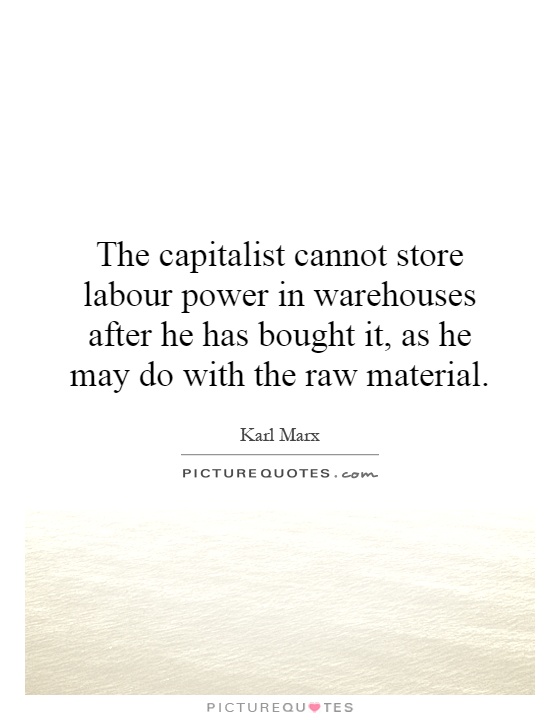The capitalist cannot store labour power in warehouses after he has bought it, as he may do with the raw material

The capitalist cannot store labour power in warehouses after he has bought it, as he may do with the raw material
Karl Marx, a renowned philosopher and economist, was critical of the capitalist system and its exploitation of labor. One of the key concepts in Marx's critique of capitalism is the idea of labor power and how it is commodified by the capitalist class. In his analysis, Marx argued that labor power is a unique commodity that cannot be stored in the same way as raw materials or finished goods.When a capitalist purchases raw materials or goods, they can store them in warehouses until they are needed for production or sale. However, labor power is different in that it is not a physical object that can be stockpiled or stored for future use. Instead, labor power is the capacity of individuals to work and produce goods and services. Once a capitalist has purchased this labor power, they cannot simply store it away until it is needed.
Marx believed that this distinction was crucial in understanding the dynamics of capitalist exploitation. The capitalist class, by purchasing labor power from workers, effectively controls the means of production and dictates the terms of employment. Workers are forced to sell their labor power in order to survive, as they do not own the means of production themselves. This creates a power imbalance in which capitalists can extract surplus value from the labor of workers, leading to exploitation and alienation.
Furthermore, Marx argued that the capitalist system inherently devalues labor power by treating it as a commodity to be bought and sold on the market. This commodification of labor power reduces workers to mere cogs in the capitalist machine, stripping them of their humanity and autonomy. In contrast, Marx envisioned a socialist society in which labor power would be collectively owned and controlled by the workers themselves, leading to a more equitable and just distribution of resources.












 Friendship Quotes
Friendship Quotes Love Quotes
Love Quotes Life Quotes
Life Quotes Funny Quotes
Funny Quotes Motivational Quotes
Motivational Quotes Inspirational Quotes
Inspirational Quotes